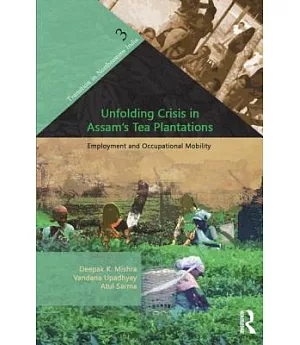As the Indian economy integrates into global circuits of production, exchange and accumulation, the burdens of adjustment are shared unequally by different sectors, classes and regions. This
study unravels the livelihood strategies and living conditions of labour in the tea gardens of Assam. The tea sector has been undergoing a crisis since the 1990s, with stagnant production,
decline in exports, and closures of many tea gardens leading to large-scale retrenchments in the labour force.
Based on a detailed analysis of secondary data and primary field research, the study examines the extent, types and implications of inter-generational occupational mobility (or immobility)
among tea garden labourers in Assam. In the process, it reflects on how even a sector that had brought capital and labour from outside and contributed significantly to the country’s export
earnings failed to create dynamic growth linkages within the local economy. The experience of the labour force in the Assam tea sector, the authors argue, is important for making sense not
only of the development dynamics of the region, but of the contradictory ways in which forces of globalisation and neo-liberal reforms have been reshaping the worlds of labourers in the
margins.
The book will be of interest to students and scholars of labour studies, development studies, management studies, and studies of north-east India, as well as to policy-makers and those in the
tea industry.





















